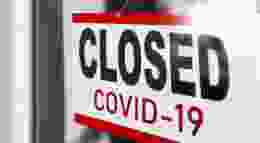
Are there any “non-essential” workers?
The lockdown, designed to prevent the spread of Coronavirus, is counterproductive and may be detrimental to the NHS and society, argues Sean Walsh
In recent Downing Street news conferences, Sky News' Beth Rigby has been exhorting the government to extend the lockdown to all but essential workers, on the grounds that this "will save lives". Presumably by "essential workers" she has the following in mind: doctors, nurses, ambulance staff, police officers, supermarket workers, sound recordists and Sky News political editors. The rest of us have, at best, a merely contingent liberty. We're the lot who need saving from ourselves.
Is "saving lives" all that really matters? If there was a pill that you could take which would knock you out for, let's say, four months (or until this crisis has passed) would you be right to take it? And, further, would it be right for the government to force you to take it? I'm beginning to suspect that for Rigby, Piers Morgan and the histrionic (but essential) media types this would be a no-brainer: in this thought experiment the lockdown is complete, lives will be saved. And if that means a short and possibly irreversible sleepwalk to dystopia then so be it. To repeat: lives will have been saved. The fact that they will have been voided of quality is neither here nor there. It's quantity that counts. That new false idol, the epidemiological model, would be of no use otherwise.
Rigby's premise is highly questionable. I doubt that there even is such a thing as a "non-essential" worker. An economy is less like a machine capable of functioning in sleep mode, and more like an organic whole in which each part of the organism makes a significant but indescribably complex contribution to the overall living system. There are variables involved here that seem to be quite invisible to the media jackboot-types, and the scientists who inspire them. It's difficult to be certain which part of the organism you can anaesthetise without killing the whole thing.
To put it another way: The Prime Minister's stated intentions are to "save lives" and to "protect the NHS". These have become commingled, both in his mind and in the collective consciousness. But if you save lives by killing the economic organism, then how are you protecting the NHS? If you tank the economy, then you end up with no NHS.
And then there is the deeper metaphysics. What is an economy? What is its essence? According to Catholic social teaching the generation of wealth in service of the common good is an unashamedly (if conditionally) good thing. Wealth creation flows from the creative mechanisms of the human person. It is an expression of the divine spark. The generation of wealth has a spiritual as well as a social dimension. There is nothing wrong with becoming wealthy, just so long as you discharge the obligations that come with that in service of your brothers and sisters in Christ.
The same point can be made in secular terms: the healthy economy is a distillation of myriad human decisions which are the result of the considered reflection of human persons; and transactions which are freely agreed contractual consequences of those decisions. An economic system is an emergent phenomenon, and arises (as Adam Smith put it) by the operation of a metaphorical "invisible hand", rather than an actually "hidden" one.
Similarly, work in and of itself is a spiritual good. It gives shape to lives and allows for what Aristotle called the exercise of practical reason, a necessary condition of human flourishing. This is true whether you are a brain surgeon or (at the other end of the intellectual scale) a presenter on Good Morning Britain. St Paul's letters to the early Church emphasised that Christians should work to earn their keep as a formative means of spiritual development (he was, himself a tent-maker; Jesus, of course was an artisan).
What follows? That to insist that workers are locked down, whether those workers are "essential" or otherwise, incurs a spiritual price that must in the end be explicated in terminology which goes beyond the language of economics. People are entitled to insist that such a quarantine is necessary -and they may well be right- but they are not entitled to obscure that cost merely because it cannot be assimilated into the algorithms of epidemiological modelling.
In summary: Rigby's exhortations assume a premise that is false, appeal to a distinction where one does not necessarily exist, in service of an epidemiology that is incomplete, which in turn eliminates forms of harm it is not equipped to deal with.
Otherwise OK.
I've been critical of the Prime Minister's approach to this crisis, in articles here and elsewhere (my conscience is somewhat assuaged by the knowledge that he will never read a word I write). But I have some human sympathy for the position he is in and the decisions he is being forced to make. But those decisions have led us to the borderlands of the police state. They must therefore be rigorously interrogated (so to speak), for his sake as well as ours. As Mill nearly put it: if your opinion is the truth then it can only be to your end benefit that it is challenged and challenged hard. The worst thing that is likely to happen is that you end up sharpening both your opinion and your presentation of it. Our media class has shrugged off its responsibilities of moderation in all this, knowing that the horror story, the worst -case scenario, is the one that parts of their audience are most eager to hear.
From the economic perspective there may well be no difference between "essential" and "non-essential" workers. From the point of view of crisis- management, however, such a distinction might yet have to be confected. But one worker we can well do without is the journalist who decides to become an agitator in service of the suspension of our freedoms.







